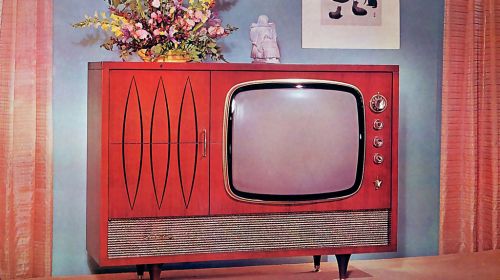
I get paid to defend unpopular speech. And, I’m the first to jump at the slightest hint of government censorship or coercion in the free market of ideas, as our recent comments critical of the IRS’s plans to regulate non-partisan political speech will attest.
But many conservatives are wrongly invoking to slam a survey of various media outlets, administered by the Federal Communications Commission, which is intended to collect information to help the FCC identify “critical information needs” in American communities. The survey’s findings will be central in efforts to maintain competition among newsrooms and protect viewpoint diversity, both crucial First Amendment values. (I’d also note that this is a case where the FCC is affirmatively trying to get a sense of the market before regulating, also a good move for speech.)
Complaints range. Some, like FCC Commissioner Ajit Pai, call it a latter-day “fairness doctrine,” the very old rule at the FCC that broadcast licensees had to cover and present both sides of controversial issues. Others have gone much further, going so far as to accuse the FCC of thought policing. As much as I’d like to join another strange bedfellows First Amendment alliance, both concerns are seriously overwrought.
Let me start with the fairness doctrine. The FCC implemented the rule in 1949, in the very early years of television. It was, in fact, the second year of the CBS Evening News, which pioneered the use of the now standard regular anchor. Market dynamics were much different. It was an age of extreme concentration in the fledgling television industry, and similar problems in radio.
As a result, the FCC implemented a policy with two prongs. One, licensees had to try and cover controversial public issues. Two, they had to present competing perspectives (though not necessarily on an equal footing). To be sure, the doctrine served an admirable purpose – avoiding monopolization of the airwaves by the supporters on one side of an important issue. Nevertheless, violations of the doctrine were backed up by a big stick: license revocation.
This is not that.
The FCC’s current plan is a confidential, anonymous survey of station managers, news editors, line reporters and others about whether the people who work in the newsroom feel that they are serving their market communities effectively. There is no mention, whatsoever, of any potential consequence for refusing to answer or for giving a particular answer. Indeed, the anonymity of the survey and disaggregation of the results guarantee that no respondent will face any retaliation for any response, and the survey will be conducted by an independent contractor to preserve that anonymity.
The thought police argument is more easily disposed of. The FCC does literally police thought by levying fines for broadcasters who air sexual, scatological or profane material, which, ironically, many of the conservatives calling foul here actually support. Again, this is not that. There is no enforcement threat. And there is nothing obvious on the face of the survey that will have a coercive effect on the content of the news.
Concededly, it’s certainly true that government laws and regulations seeking “voluntary” cooperation can censor or chill speech. But those cases of indirect coercion are relatively clear.
For instance, in one of the primary Supreme Court cases on the question, , a Rhode Island state commission on obscenity would regularly send notices to booksellers. The notices would ask the merchant’s “cooperation” in removing books that the commission had adjudged obscene, and noted, importantly, that the commission was duty-bound to report the merchant to the authorities for prosecution if they continued to sell the material at issue.
Similarly, we’ve strongly inveighed against the use of “soft” power by the government, most notably in the context of “voluntary” rating systems by the entertainment industry. There lawmakers ominously say: police yourself, or we’ll do it for you. Government can’t force voluntary cooperation to achieve a result that it wouldn’t be able to constitutionally achieve directly.
In any event, I do appreciate the sensitivity of a couple of the questions in the survey, which have since been removed at the direction of Chairman Wheeler. But, with the First Amendment, as important as it is to be vigilant, it’s also important to resist crying wolf. Too many are unfortunately doing so here.
Updated: Shortly after this post went up, the FCC announced that it wouldn't be surveying station owners, managers or reporters at all. The analysis above, however, still stands. While even indirect government coercion can offend the First Amendment, absent any coercion, the government is free to collect information to inform policy making (and does so all the time).


